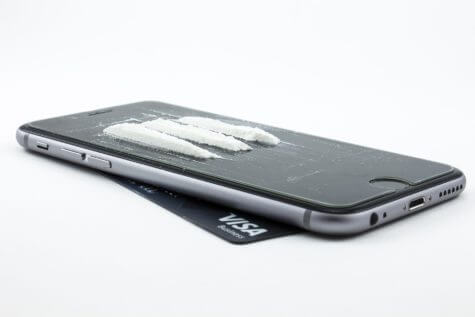BALTIMORE — There are lots of reasons to stay away from cocaine: long-term addiction can lead to heart attacks and brain damage. Even in the short-term, users may experience muscle spasms and convulsions, and extreme paranoia and anger.
Now there’s another reason: you’re less likely to practice safe sex.
That’s according to a study that examined the effect of cocaine administration on the user’s sexual desire, condom use, and stated willingness to suspend sexual gratification in order to prevent possible disease transmission.

The study’s findings were first published last month in the journal Psychopharmacology.
To test their proposition, researchers, led by Dr. Matthew Johnson, PhD., associate professor of psychiatry and behavioral sciences at the Johns Hopkins University School of Medicine, recruited twelve admitted cocaine users to take cocaine in controlled doses and have their sexual desire measured by looking at pictures of men or women with whom they might want to have intercourse.
Results showed that the respondents grew more aroused and more sexually impulsive the more they consumed the drug.
That may not surprise too many people, but the study participants also expressed a much greater willingness to forego the use of condoms — even when told of a hypothetically high risk of contracting an STD.
The difference in sexual risk avoidance between the cocaine using group and the control group tested with a placebo was fairly substantial. The highest cocaine users were just over 40 percent likely to use a condom if they had to wait for one. By contrast, respondents not on cocaine were about 70 percent likely.
“The bottom line is that cocaine appears to increase sexual desire, and even though users who are on cocaine report being likely to use a condom if they had one in a risky sex situation, if a condom isn’t available, cocaine makes people less willing to postpone sex to get a condom,” Johnson says in a university release. “They become more impatient when it comes to waiting for sex.”
The finding of a cocaine-and-sex connection is not exactly news, of course. Cocaine use has been linked to risky sexual behavior for decades, but there’s been virtually no research on its actual impact on sexual desire and sexual decision-making.
The research results were especially striking because it did not take much cocaine to stimulate greater impulsiveness and risk-taking. Apparently, even a single snort did the trick.
Then again, those pictures must have helped, too.
Maybe a follow-up study will test the same proposition with live partners – that is, if scientists can get approval from their research board.

DUH